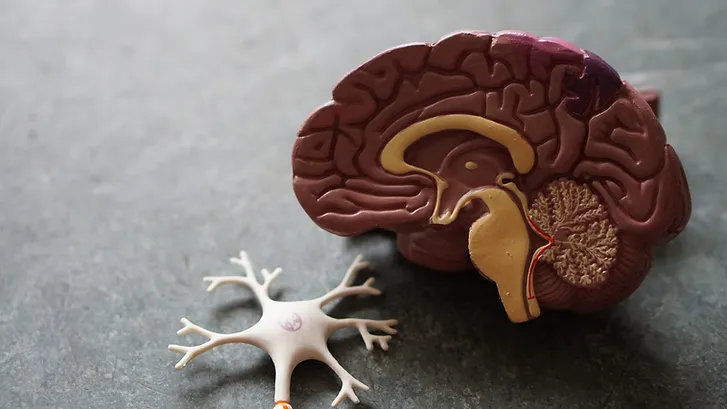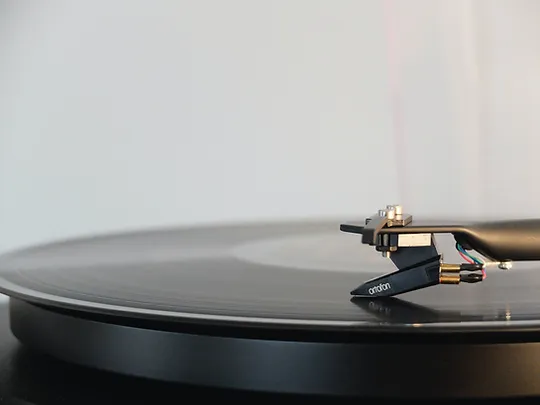Many call music a universal language; people of all ages, genders, and backgrounds can find enjoyment in this medium. Recently, it has been shown that music can do more than just entertain—music can heal.
What is Music Therapy?
 Music therapy, the clinical use of music-related activities to improve individual cognition and health, has gained popularity in recent years. This form of therapy has been used for various health issues, such as supporting veterans experiencing PTSD, assisting those healing from trauma, and easing the burden of those who experience chronic pain. The more researchers explore music therapy, the better they understand the relationship between music and the mind, expanding how this therapy impacts emotional, physical, and cognitive well-being.
Music therapy, the clinical use of music-related activities to improve individual cognition and health, has gained popularity in recent years. This form of therapy has been used for various health issues, such as supporting veterans experiencing PTSD, assisting those healing from trauma, and easing the burden of those who experience chronic pain. The more researchers explore music therapy, the better they understand the relationship between music and the mind, expanding how this therapy impacts emotional, physical, and cognitive well-being.
One area where music therapy has shown promise is in helping individuals with dementia disorders.
 What is Dementia?
What is Dementia?
Dementia affects about five million adults over the age of sixty-five and is an umbrella term for conditions that weaken an individual’s ability to remember, retain, and utilize information necessary for daily life.
As Laurie Graham, a novelist and dementia caregiver, once said:
“None of us want to be reminded that dementia is random, relentless, and frighteningly common.”
Dementia is a devastating condition for both individuals and their families. Research into improving the well-being of those suffering from dementia is ongoing, and many have turned to music-based therapies for answers.
How Can We Help Our Loved Ones with Dementia?
Recent research suggests that music-based therapy can significantly benefit individuals with dementia by engaging them in mental exercises. A study by Alvarez (2022) examined how individuals with dementia respond to Neurologic Music Therapy (NMT). Researchers used vocal and breathing exercises to stimulate speech and language while incorporating familiar songs to exercise memory recall.
The study found that NMT positively impacted both mood and cognition in dementia patients. Another study reported similar findings, with general well-being increasing by 48% and sociability rising by 32% among participants. These studies highlight the impressive effects of music-based activities on cognitive function and emotional health.
Music therapy can also be implemented on a smaller scale at home. By integrating familiar songs into daily routines, family members can help loved ones engage more actively in their environment.
Music Therapy for Alzheimer’s and Dementia-Related Diseases
Music therapy has also been found to benefit individuals suffering from Alzheimer’s disease. A study by Svansdottir & Snaedal (2006) observed Alzheimer’s patients enrolled in an 18-session music therapy program. By incorporating familiar songs, researchers found a significant reduction in activity disturbances, such as aggression and paranoia.
However, when the therapy sessions ended, the positive effects gradually diminished, emphasizing that continued exposure to music therapy is essential for maintaining benefits.
Some might argue that sustaining music therapy requires ongoing effort, making it challenging to maintain. However, researchers suggest that one of the causes of activity disturbances is a lack of meaningful engagement in daily life. Introducing music-related activities gives individuals a sense of purpose while exercising their cognitive functions.
The Role of Music in Memory and Emotional Regulation
Understanding how structured music therapy benefits dementia patients is just the beginning. Dr. Concetta Tomaino, director of the Institute for Music and Neurologic Function, suggests that individuals can incorporate music therapy at home to improve recognition and association.
Many dementia patients recognize familiar songs and connect them with past experiences. Singing these songs with loved ones can help evoke memories and provide emotional comfort. Dr. Tomaino explains, “The music that we love, that we hold attachments for and hold memories of, becomes deeply embedded in subcortical networks in our brain.” This embedded connection can assist individuals with dementia in expressing themselves, regulating their emotions, and even improving social interactions.
Final Thoughts
The progression of dementia disorders can be overwhelming, but research shows that taking action can improve the well-being of those affected. Music therapy has demonstrated significant cognitive and emotional benefits for individuals with dementia, particularly in elderly populations.
Future research could explore how different forms of music affect patients or whether music therapy could extend beyond neurodegenerative diseases to help with other memory-related challenges. By understanding the available therapeutic options, individuals can make informed decisions on how to support loved ones facing dementia.
References
- Chan, N. (2022, February 25). Concetta Tomaino: Healing the Brain and Body With Music. Being Patient. Read here.
- Madsø, K. G., Molde, H., Hynninen, K. M., & Nordhus, I. H. (2021). Observing music therapy in dementia: Repeated single-case studies assessing well-being and sociable interaction. Clinical Gerontologist, 45(4), 968–982. Read here.
- Cleveland Clinic. (2022). Music Therapy: What Is It, Types & Treatment. Read here.
- Prieto Álvarez, L. (2022). Neurologic music therapy with a habilitative approach for older adults with dementia: A feasibility study. Music Therapy Perspectives, 40(1), 76–83. Read here.
- Svansdottir, H. B., & Snaedal, J. (2006). Music therapy in moderate and severe dementia of Alzheimer’s type: A case–control study. International Psychogeriatrics, 18(4), 613–621. Read here.
- CDC. What Is Dementia? Read here.




